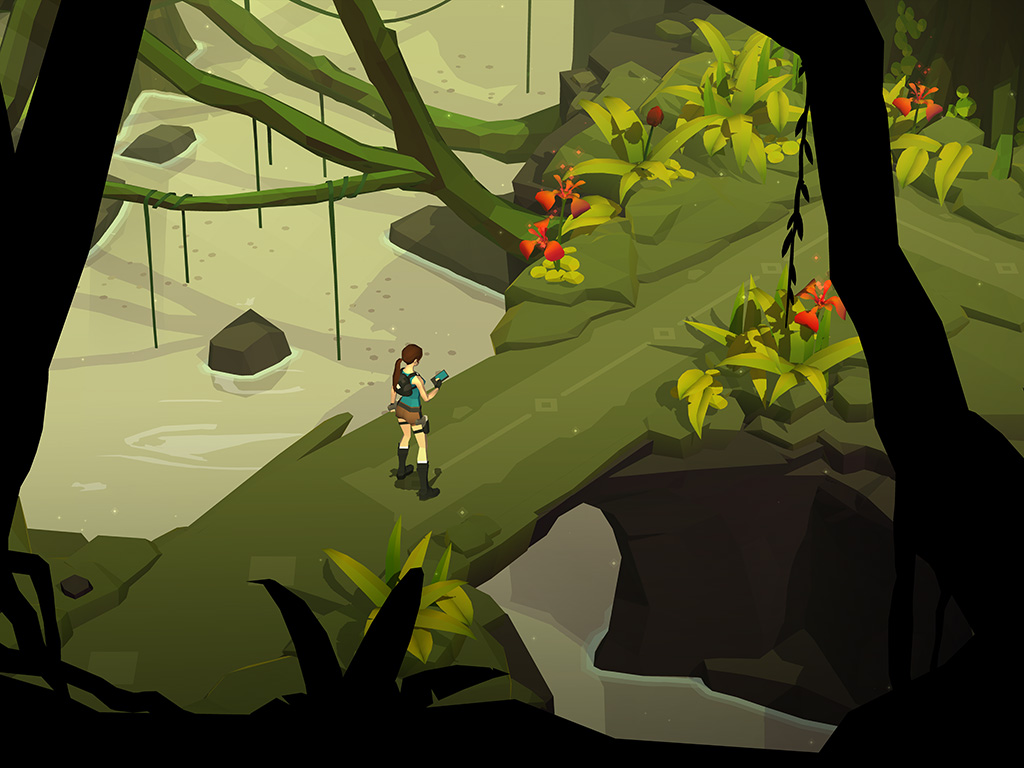
In 2014, Square Enix Montreal released Hitman Go, a turn-based reimagining of the Hitman franchise, a series few thought could ever translate to mobile devices.
But to the shock of many, especially longtime fans of the series, Hitman Go ended up being one of the most pleasant gaming surprises of the year, with enthusiast gaming websites including it in their Best of 2014 lists. Hitman Go really is that great of a game.
With this year’s follow-up, Lara Croft Go, Square Enix has another hit on their hands, albeit one that hasn’t translated quite as well to mobile devices when compared to its predecessor.
Lara Croft Go follows the same framework as Hitman Go. Players move Lara Croft, who adopts the blue tank top and brown shorts of older Tomb Raider titles (other costumes can be unlocked), across a space resembling a virtual board game.
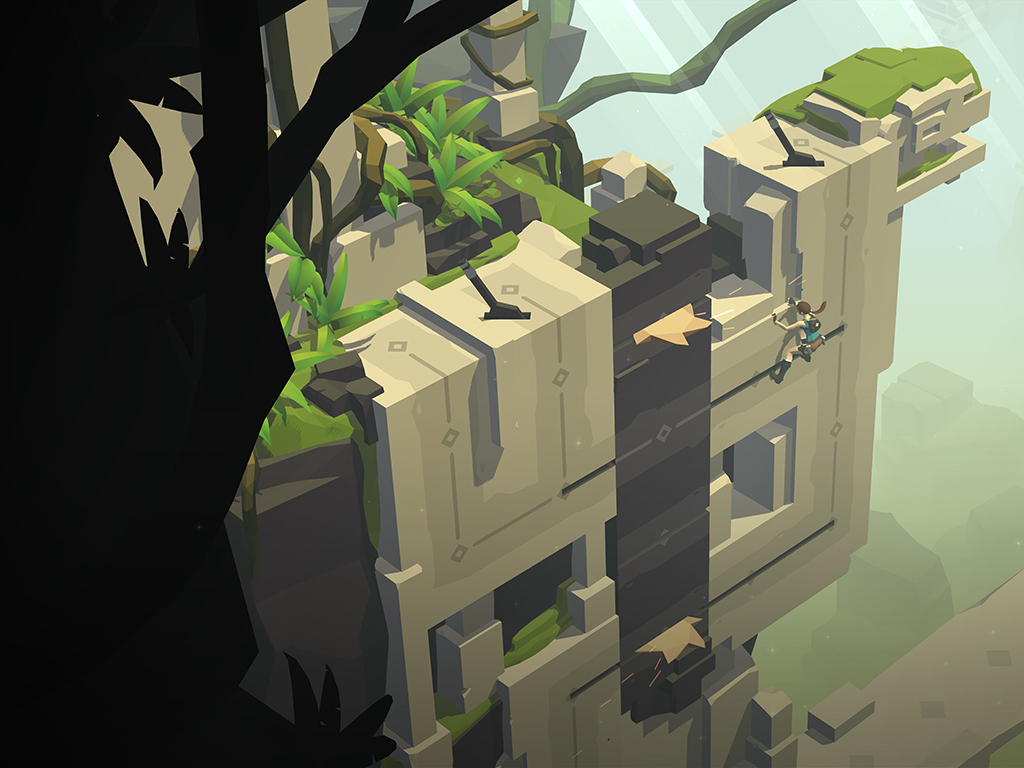
The game is also still turn-based, which means once an enemy has detected your presence, it will move each time the player shifts the position of their virtual Lara Croft game piece. Some enemies require you to kill them from behind (or from the side), and maneuvering Lara to the correct location, and in some cases avoiding contact altogether, is a significant part the game’s stages.
The game’s various enemies also behave in varying ways. For instance, snakes remain stationary until you’re directly in front of them, but lizards will chase you down, following Lara’s path around the game board. Sometimes this can be used to your advantage during particularity difficult levels that require the player to hold down weight-activated switches.
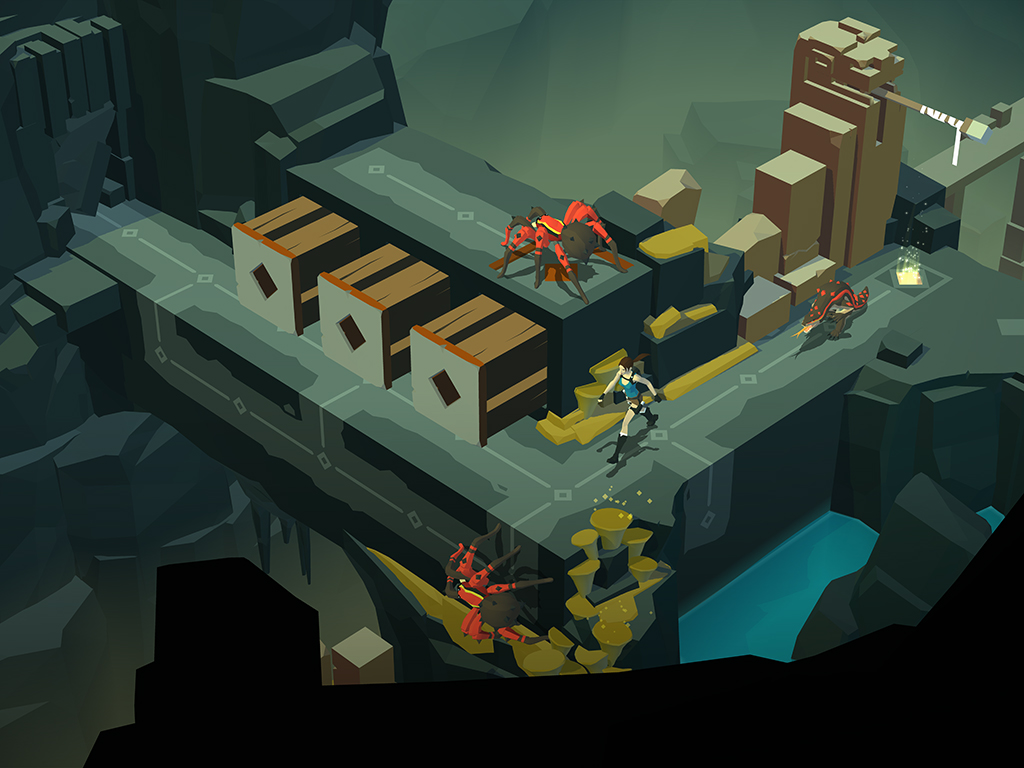
Since the Tomb Raider franchise is based on exploration, it’s inherently more difficult to translate into the board game formula Square Enix Montreal built with Hitman Go, especially when compared to the plodding, deliberate pace of the Hitman franchise. But the studio has done an admirable job of distilling the series’ fundamentals into a turn-based formula, and it works well on mobile devices — though probably not quite as well as it did with Hitman Go.
Lara Croft Go also does a great job of easing the player into the experience, slowly introducing new aspects to its puzzle formula as the game progresses. Early missions mostly consist of moving from point A to point B – by sliding your finger across the screen subtly – but later stages force the player to navigate around foes as well as traps, and the game’s difficulty ramps up considerably towards the latter half of the game. In fact, Lara Croft Go gets so difficult at times that I found myself resorting to trial and error to figure out certain levels.
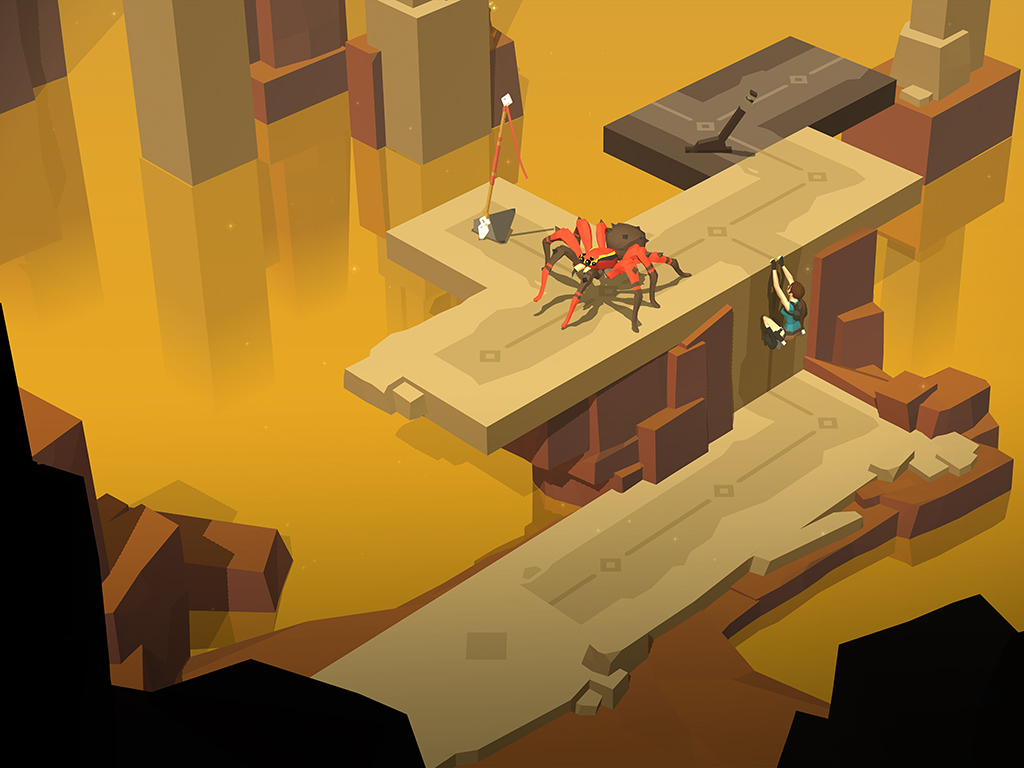
Although, it’s important to point out that when I finally did manage to navigate through some of the game’s difficult stages, in doing so I experienced a sense of satisfaction I rarely feel with mobile games. When I had to work hard to figure out a certain puzzle, the reward of progression was very apparent. The key to some of the game’s harder levels is often deceptively simple, and once I caught on to this fact I moved through most of Lara Croft Go relatively smoothly.
One of the major differences between this game and its predecessor is the ultimate goal of each level. In Hitman Go players were often required to take out a specific target or a group of enemies while remaining undetected. In Lara Croft Go, the player’s only task is to reach the finale of the level, which is often a glowing door or cave.
While it might not seem like it at first, this changes how the game plays considerably. It means that rather than just assassinating enemies, players often need to move around obstacles as well as kill foes (or avoid them) in order to make it to the end of a stage.
Also, despite its turn-based nature, Lara Croft Go feels like a much faster-paced game than Hitman Go, which makes sense given the franchise it’s based on. It’s easy to feel the need to take your turns in quick succession while a giant Komodo Dragon-looking creature is chasing you, or when a boulder is bounding down on Lara.
However because Lara Croft Go is turn-based, you can take as long as you want with every move, carefully plotting out your plan of attack. Given mobile gaming’s limitations as a platform this form of gameplay is perfect for Android and iOS devices.
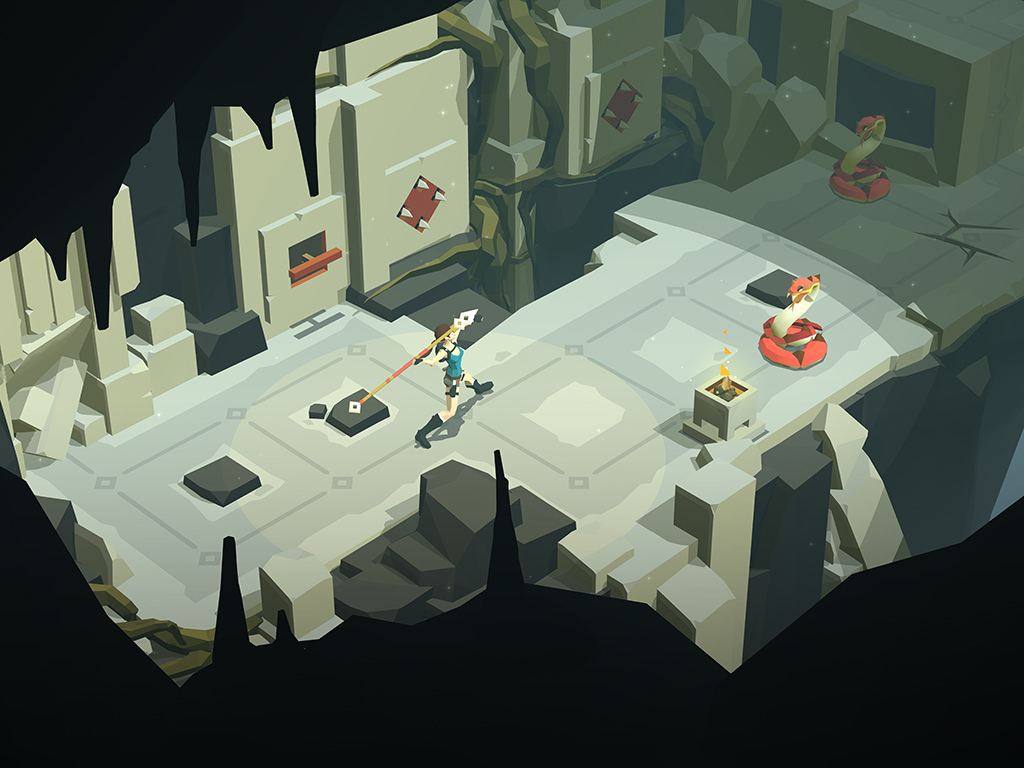
In terms of visuals, Lara Croft Go harkens back to Tomb Raider titles from the mid-to-late 90s, and features blocky, cartoony graphics to which fans of the series will likely feel a nostalgic connection. The game’s graphics blend pixel art, a popular retro-infused graphic style, with more modern, polished sensibilities, resulting in a minimalistic look that continues the style Square Enix created in Hitman Go.
If you enjoyed Hitman Go you’re going to have a lot of fun with Lara Croft Go, even if you aren’t a fan of the Tomb Raider franchise (how could you not like the recent series reboot, though?). Similar to Hitman Go, Lara Croft Go embodies everything that is great about mobile gaming. It offers up bite sized deceptively simple levels and is a game that’s been built from the ground up with its chosen platform in mind.
Square Enix Montreal’s Lara Croft Go is a great minimalist take on the series’ larger ideas and the kind of mobile game almost anyone will enjoy.
Lara Croft Go is priced at $5.79 on the iOS App Store, Google Play and Windows Phone.
MobileSyrup may earn a commission from purchases made via our links, which helps fund the journalism we provide free on our website. These links do not influence our editorial content. Support us here.


